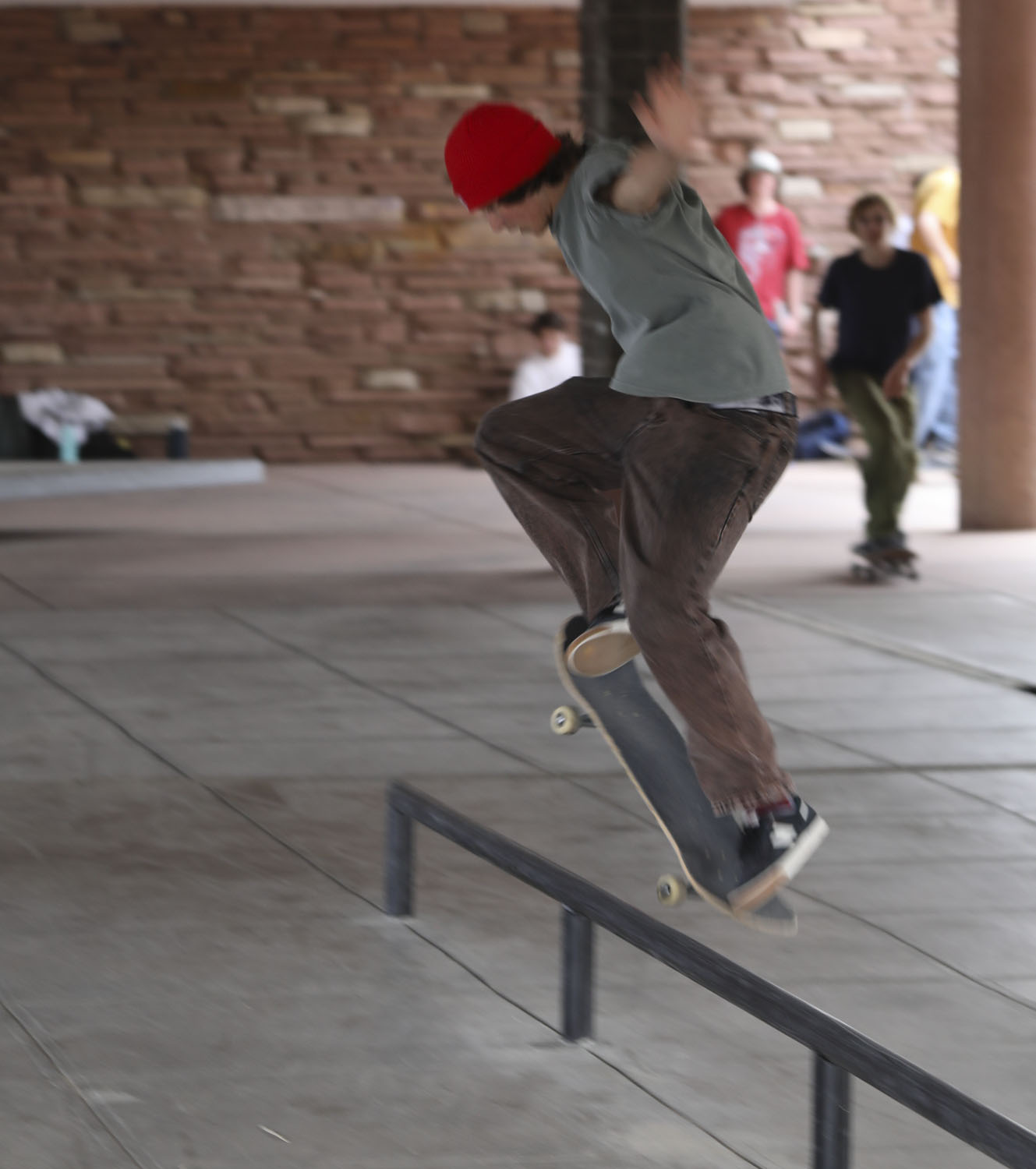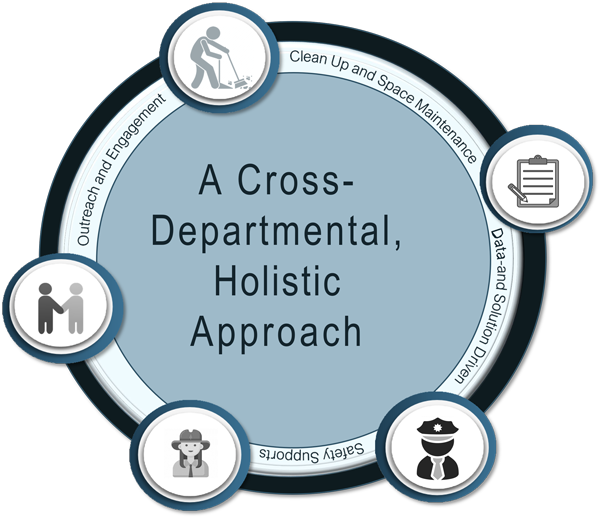In April 2021, Boulder’s City Council approved a pilot program to formulize the Safe and Managed Public Spaces (SAMPS) team. This team reflects a coordinated approach to manage camping and unsafe behavior in the city’s public spaces.
Managing the city’s public spaces

Library underpass skate area.
Safe and Managed Public Spaces
The Safe and Managed Public Spaces team's mission is to ensure that public spaces are safe and welcoming for all. The team takes a compassionate approach with residents who are camping while ensuring that the city's ordinances are enforced.
Ensuring Public Spaces are Safe and Available to All

Public spaces should be available to all community members, but unsanctioned camping excludes some members of the community from enjoying these public spaces.
Increases in unsanctioned camping have led to health and safety risks for those staying within campsites and the broader community. Campsite residents may be at risk of serious health issues or loss of life due to uncertain weather, disease and contamination, as well as being victims of crime, as campsites often attract more serious crimes such as drug distribution.
Camping creates several community issues. Campsites can increase wildfire risks and can negatively impact and endanger wetlands or other sensitive and ecologically important natural areas. Community members, visitors and city staff often feel threatened by behavior in misused public spaces and can encounter biohazards in areas such as the Boulder Creek Path, parks and open space.
Guided by compassion and a people-focused approach, the work of the SAMPS team reflects a coordinated, multidisciplinary approach that leverages the expertise of community partners to manage the city’s public spaces.
Data and Analytics
Long-Term Goals
This work is guided by seven goals that achieve a compassionate approach with people who are camping while ensuring that the city’s ordinances are enforced. The team routinely evaluates the effectiveness of this approach and adapts as needed to evolving challenges.
1: No camping in public spaces
- Increase efficiency of clean-up operations.
- Broaden geographic footprint of campsite clean-ups.
2: Individuals experiencing homelessness are connected to services
- Understand personal property-related barriers to accessing services.
- Ensure connections to services are as efficient and effective as possible.
- Improve connections, data sharing and communication between SAMPS team members.
3: Access to public space and public infrastructure is not impeded
- Evaluate programs and practices that ensure access to public space and infrastructure.
- Establish criteria for identifying areas which require immediate response due to acute life/safety issues or access to public buildings.
4: Reduction in crime and disorder in designated areas of emphasis
- Evaluate historical patterns of crime and disorder in designated areas of emphasis.
- Maintain police support in designated areas.
5: Visitors have access to knowledgeable resources on city services
- Enhance Urban Park Ranger Role.
- Increase scope of Downtown Ambassador Program.
- Improve knowledge base for visitor requests/questions
6: Crews can safely perform their work in public spaces
- Explore methods to improve measurement of barriers to safe access.
- Identify methods to improve worker safety in parks and public spaces.
7: Users of public spaces feel safe and welcoming
- Improve information sharing and communication to enhance community confidence in SAMPS work.
- Continue to improve site activation.
City, County and Community Partner Resources
-
Public Spaces Management
-
Police Homeless Outreach Team
-
All Roads Shelter
-
Mental Health Partners
-
Boulder County Public Health
-
Homeless Solutions for Boulder County
-
Boulder Targeted Homelessness Engagement and Referral Effort
-
Homelessness Services
-
Bridge House
-
Mother House
-
TGTHR To End Youth Homelessness
-
Clinica Family Health